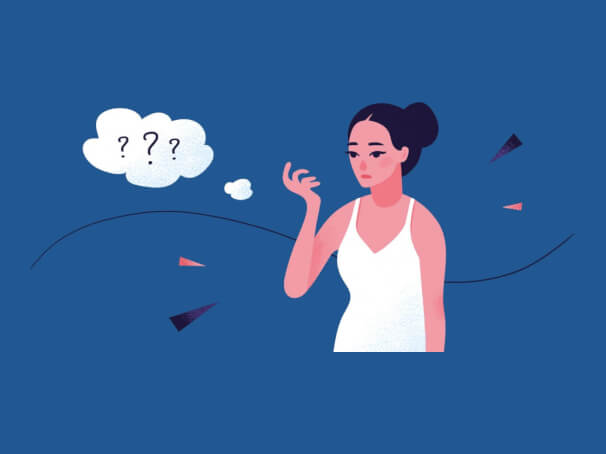
Anxiety puts a great deal of stress on your body, and stress can affect you in a variety of different and unusual ways.
While most people are familiar with many of the ways that anxiety affects the body internally, stress tends to create reactions in your organs, and your largest organ is your skin. Skin reactions to anxiety are less common, but not at all rare, and depending on the health of your skin it's possible to develop a rash from anxiety.
Rashes are one of the most unusual issues that affect the body. Depending on your anxiety level and its severity, you may be more likely to have rashes than others.
Why Would Anxiety Cause a Rash?
It's not the anxiety itself that causes a rash, but the stress caused by anxiety.
Stress puts your body in a state of extreme tension and releases a great deal of cortisol and adrenaline into your bloodstream - both of which are known to lead to skin reactions.
Stress also makes your skin more sensitive, so things that would not typically cause you to have a skin reaction (sunscreens, lotions, etc.) might create one on your skin.
For reasons that are still not entirely clear, stress also causes skin conditions to get worse. If you have:
- Psoriasis
- Eczema
- Acne
- Rosacea
- Herpes
Outbreaks of all of these problems are often triggered or made worse by stress. Stress doesn't create these conditions, but it prevents them from remaining dormant or less active.
How to Tell the Difference Between a Rash Caused by Anxiety and Something Else?
Unfortunately, skin reactions tend to all look the same, and even doctors can struggle to tell the difference between anxiety induced rashes and something else. That is why doctors cannot know for certain that your rash is caused by anxiety without using the process of elimination and taking into account other symptoms.
For example, a person with a rash may be experiencing an allergic reaction to a lotion. Or they may have a “sweat rash” (a rash that is caused by sweating). Or they may have a reaction to a medication. All of these rashes tend to look similar or the same.
Anxiety rashes are no different. Some rashes have telltale signs, but other rashes may appear identical to dozens of other different types of causes. The only way to know if your rash is caused by anxiety is to:
- Eliminate other potential causes of rash.
- Manage your stress and anxiety and see if the rash goes away.
One may never entirely know if a rash was anxiety related or not, but this approach can at least help you rule out other concerns while also addressing your anxiousness.
How to Reduce Your Anxiety Rash?
The most important thing for you to do is to begin using anxiety reduction techniques to try to control your anxiety. Whether or not your rash is anxiety related, it helps to decrease your anxiety symptoms for a better quality of life. Often rashes themselves create excess anxiety and stress, and this will often make the rash worse.
Some strategies to consider include:
- Cognitive Behavioral Therapy
- Deep Breathing and Other Relaxation Exercises
- Anxiety Medications
- Self Help, and More
You can read about all of the different anxiety treatments on our anxiety guide.
Control your anxiety, and if anxiety is the cause the rash will eventually go away.
Rashes do not go away automatically, however. They may take a few days to even a week. If the rash is not too disruptive, you may simply need to wait it out. Rashes can come and go for no reason at all, and even after you reduce your anxiety it's possible for the rash to last for a short time while your skin starts to relax.
Otherwise, general rash treatments tend to be effective, such as allergy pills like Benadryl and rash reducing medications, such as hydrocortisone cream. Talk to your doctor if you would like a specific treatment, especially if you suspect that the rash is caused by something other than anxiety.
Make sure you're not making your rash worse by continuing to experience stress, scratching the bumps, or wearing clothes/using creams that can cause irritation.
Prevention is the Key to Success
Ideally, you should learn to control your anxiety in order to prevent future rashes. Once a rash comes, it may not always go away overnight. But if you reduce your stress and anxiety, the rashes will be less likely to come back.
Anxiety Can Make Your Rash Worse
Many of those with anxiety see a rash and respond in ways that are counterproductive to its treatment. For example:
- They may cover it up with long sleeves preventing it from breathing.
- They may try to wash their skin too much, leading to skin irritation.
- They may experience more anxiety because of their anxiety rash, leading to a longer lasting rash.
It's important to understand your own anxiety and how you react to it before you can effectively treat it.
Anxiety has a profound effect on the body - more than we used to believe. Rashes are yet another example of an anxiety problem that looks like a physical problem. Control your anxiety, and you can control your rashes.










